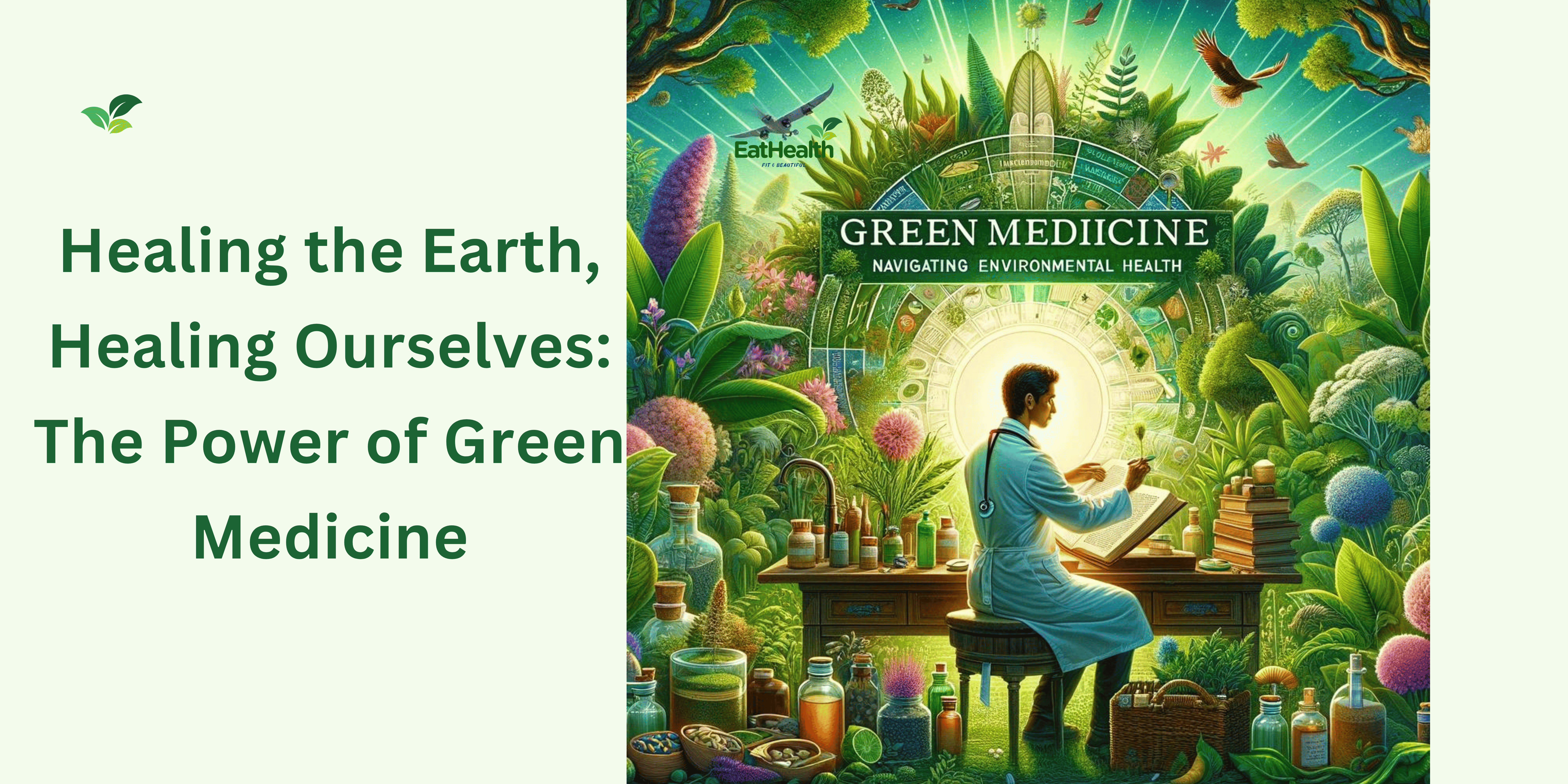Green Medicine: Navigating Environmental Health
Healing the Earth, Healing Ourselves: The Power of Green Medicine
Green Medicine: Navigating Environmental Health
In the pursuit of optimal health, individuals often turn to various medical treatments and interventions. However, amidst this quest for wellness, the environmental health impact of healthcare practices is often overlooked. Green medicine, an emerging field that prioritizes both human health and environmental sustainability, offers a holistic approach to healthcare. This article explores the concept of green medicine, its principles, and its implications for environmental health.
Understanding Green Medicine
Green medicine, also known as eco-medicine or sustainable healthcare, encompasses practices that promote health while minimizing harm to the environment. It emphasizes the use of natural, renewable resources and eco-friendly techniques to prevent illness, diagnose conditions, and treat patients. At its core, green medicine seeks to address the interconnectedness of human health and environmental health well-being, recognizing that the health of individuals is intricately linked to the health of the planet.
Principles of Green Medicine
Several key principles guide the practice of green medicine:
- Prevention: Green medicine places a strong emphasis on preventive measures to avoid illness and promote wellness. This includes lifestyle modifications, dietary changes, and environmental interventions aimed at reducing exposure to harmful substances.
- Natural Remedies: Green medicine prioritizes the use of natural remedies derived from plants, herbs, and other organic sources. These remedies are often less toxic and have fewer adverse effects compared to synthetic pharmaceuticals.
- Minimization of Waste: Green medicine seeks to minimize waste generation and environmental pollution associated with healthcare practices. This includes reducing energy consumption, recycling materials, and implementing sustainable waste management strategies.
- Promotion of Environmental Sustainability: Green medicine advocates for practices that support environmental sustainability, such as using renewable energy sources, reducing carbon emissions, and preserving natural habitats.
- Holistic Approach: Green medicine takes a holistic approach to healthcare, considering the interconnectedness of the body, mind, and environment. It recognizes the importance of addressing underlying causes of illness and promoting overall well-being.
Applications of Green Medicine
Green medicine encompasses various healthcare practices and modalities, including:
- Herbal Medicine: Herbal remedies have been used for centuries to treat a wide range of ailments. Green medicine harnesses the healing properties of plants and herbs to promote health and alleviate symptoms.
- Nutritional Therapy: Nutrition plays a crucial role in maintaining health and preventing disease. Green medicine emphasizes the importance of a balanced diet rich in whole foods, fruits, vegetables, and essential nutrients.
- Mind-Body Therapies: Mental and emotional well-being are integral components of overall health. Green medicine incorporates mind-body therapies such as meditation, yoga, and acupuncture to promote relaxation, reduce stress, and enhance resilience.
- Environmental Health Medicine: Environmental factors have a significant impact on human health. Green medicine addresses environmental influences on health, such as air and water quality, chemical exposure, and electromagnetic radiation.
- Integrative Medicine: Integrative medicine combines conventional medical treatments with complementary and alternative therapies. Green medicine integrates eco-friendly practices into conventional healthcare settings to provide comprehensive and sustainable care.
Implications for Environmental Health
The practice of green medicine has profound implications for environmental health:
- Reduced Environmental Pollution: By minimizing the use of synthetic chemicals, pharmaceuticals, and other pollutants, green medicine helps reduce environmental pollution and protect ecosystems.
- Conservation of Natural Resources: Green medicine promotes the use of renewable resources and sustainable practices, conserving natural resources such as water, energy, and biodiversity.
- Climate Change Mitigation: Healthcare facilities are significant contributors to greenhouse gas emissions. Green medicine initiatives, such as energy efficiency improvements and renewable energy adoption, contribute to climate change mitigation efforts.
- Healthier Communities: By prioritizing preventive care and promoting environmental sustainability, green medicine contributes to the creation of healthier, more resilient communities.
Challenges and Opportunities
While green medicine holds great promise for advancing both human health and environmental health sustainability, it also faces several challenges:
- Resistance to Change: Traditional medical practices and pharmaceutical interventions may be deeply ingrained in healthcare systems, posing challenges to the adoption of green medicine principles.
- Lack of Research and Education: Further research and education are needed to support the efficacy and safety of green medicine practices and to train healthcare professionals in sustainable healthcare delivery.
- Cost Considerations: Green medicine practices may require upfront investments in infrastructure, technology, and training, which can be perceived as barriers for healthcare providers and institutions.
- Policy and Regulatory Hurdles: Policy and regulatory frameworks may need to be updated to incentivize and support the adoption of green medicine practices and to ensure patient safety and quality of care.
Despite these challenges, green medicine presents significant opportunities for innovation and collaboration across healthcare, environmental health, and policy sectors. By embracing sustainable healthcare practices, we can protect both human health and the planet for future generations.
Conclusion
Green medicine represents a paradigm shift in healthcare towards more sustainable and holistic approaches to healing. By prioritizing preventive care, natural remedies, and environmental health sustainability, green medicine offers a path towards healthier individuals and a healthier planet. As we navigate the complex challenges of the 21st century, embracing the principles of green medicine is essential for promoting human health, protecting the environment, and building a more resilient and sustainable future.





